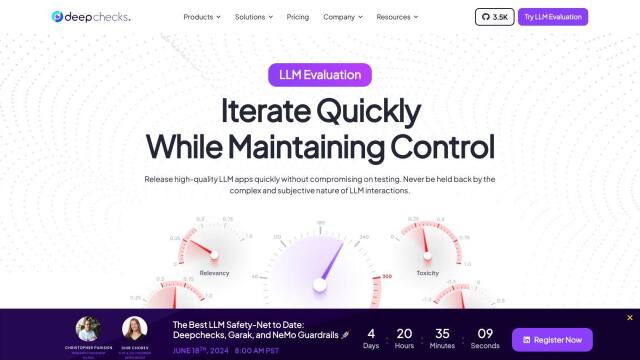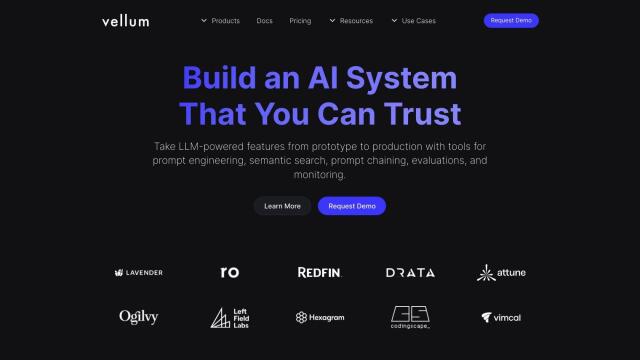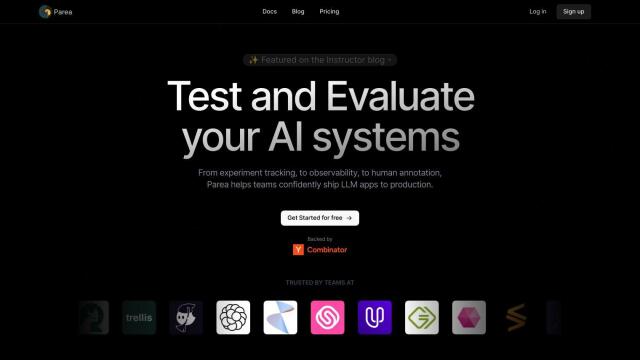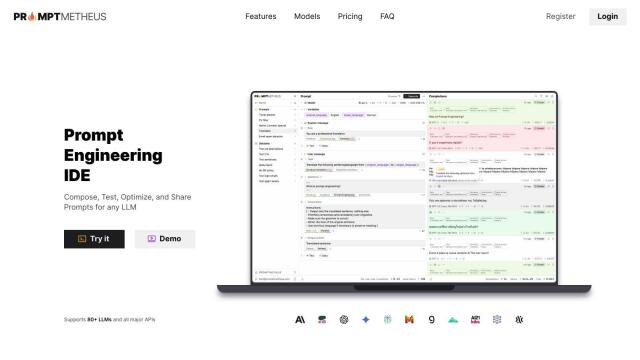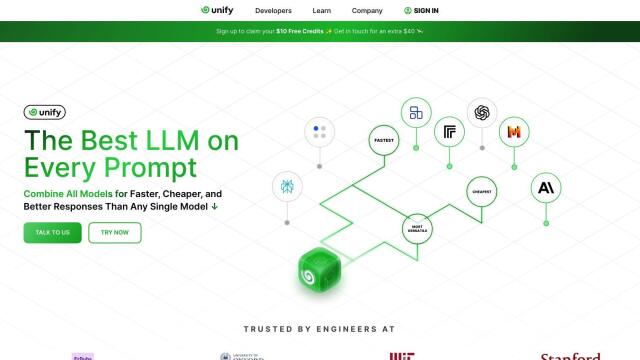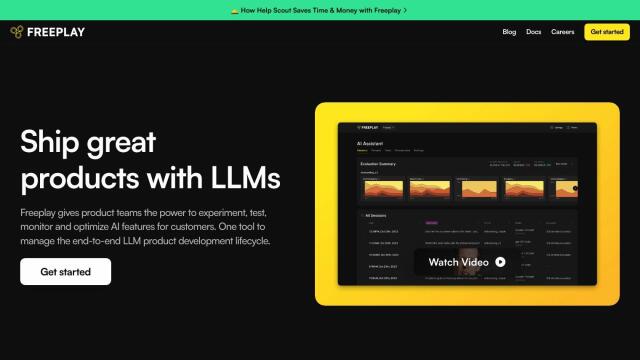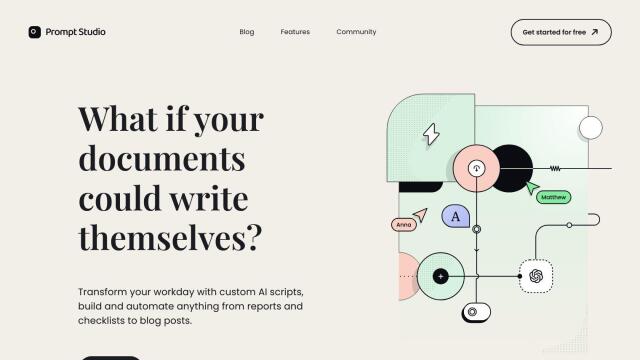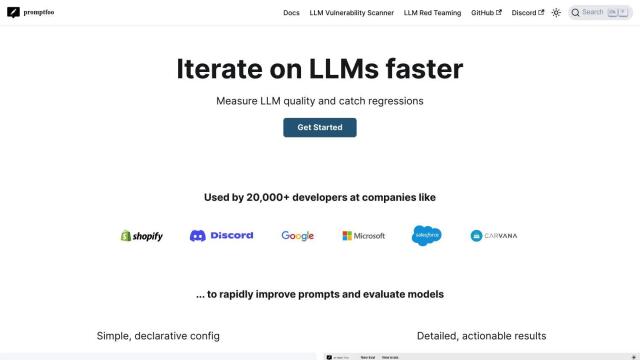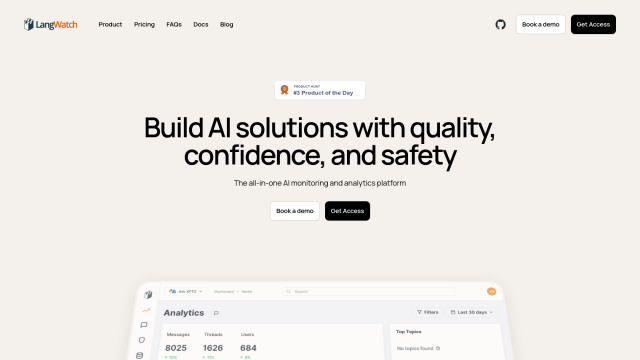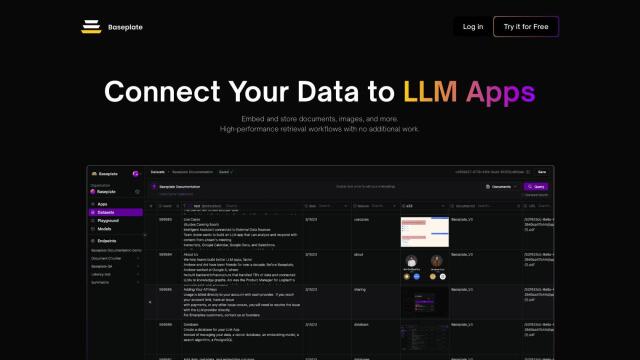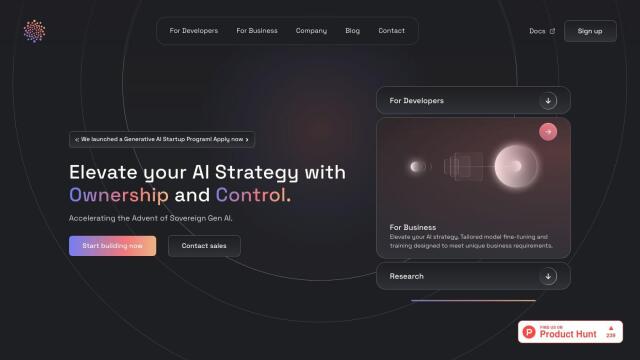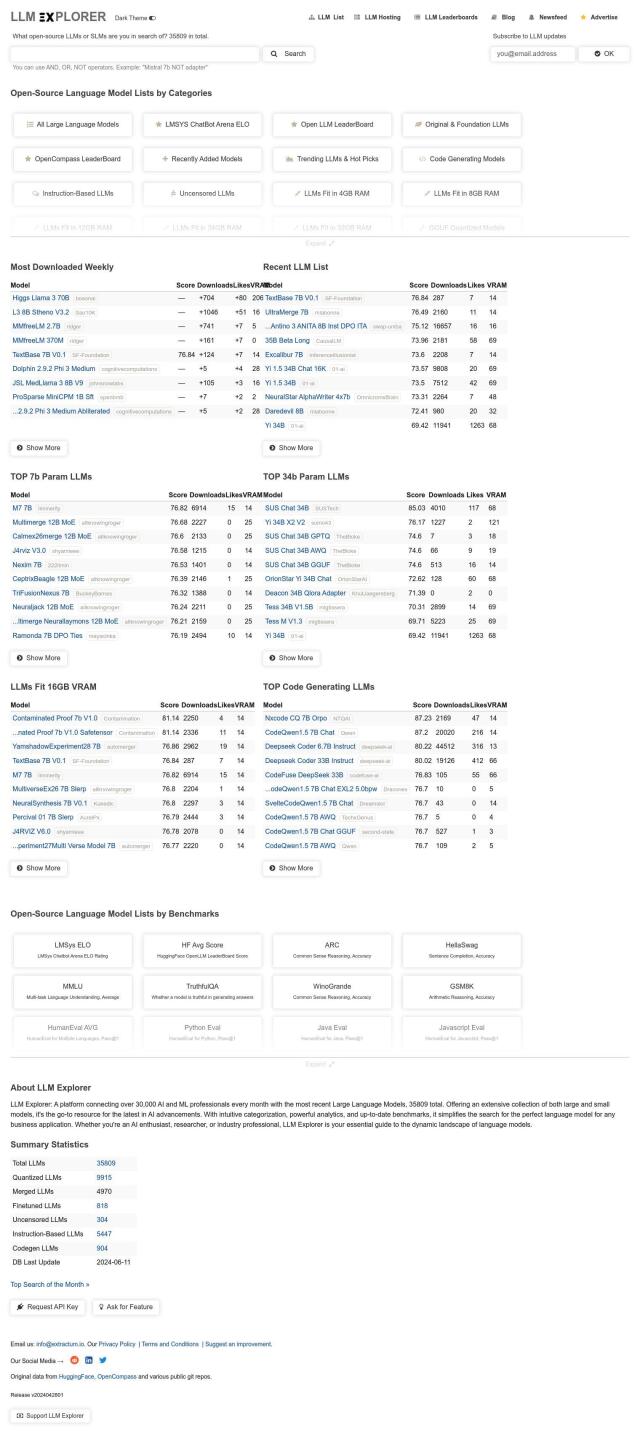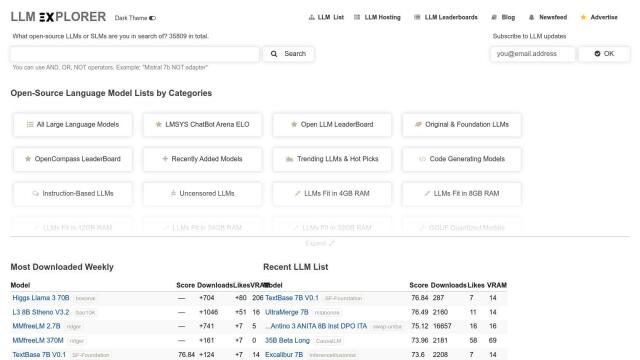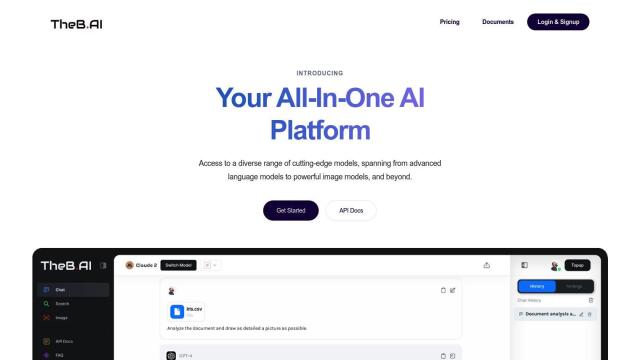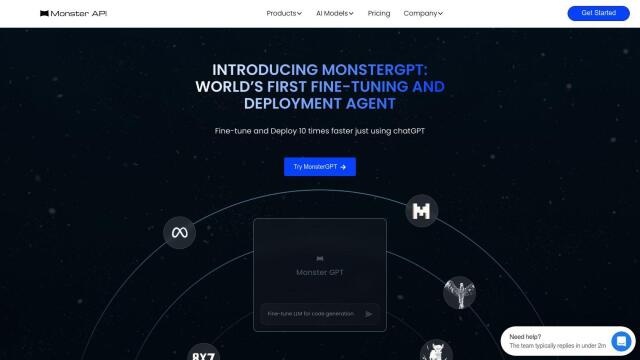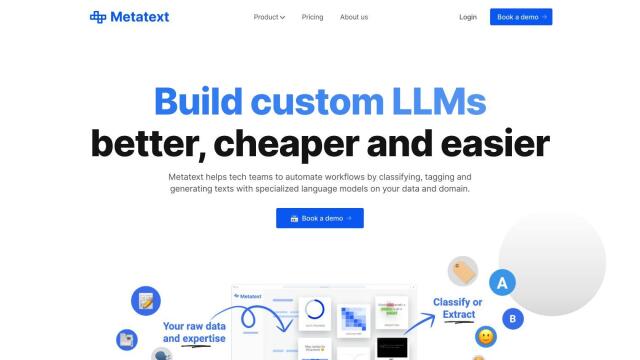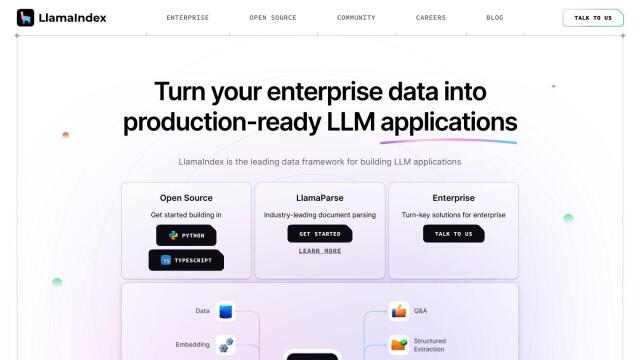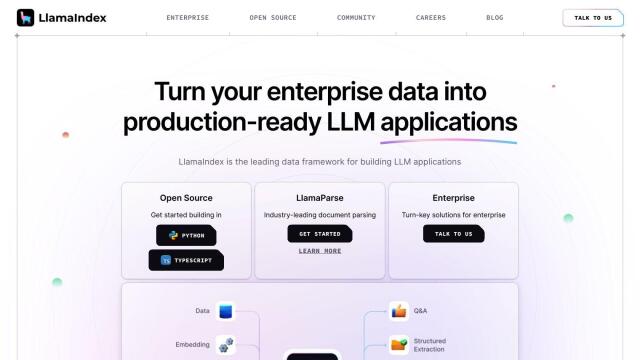Question: How can I prioritize and resolve issues in my language model quickly and efficiently?
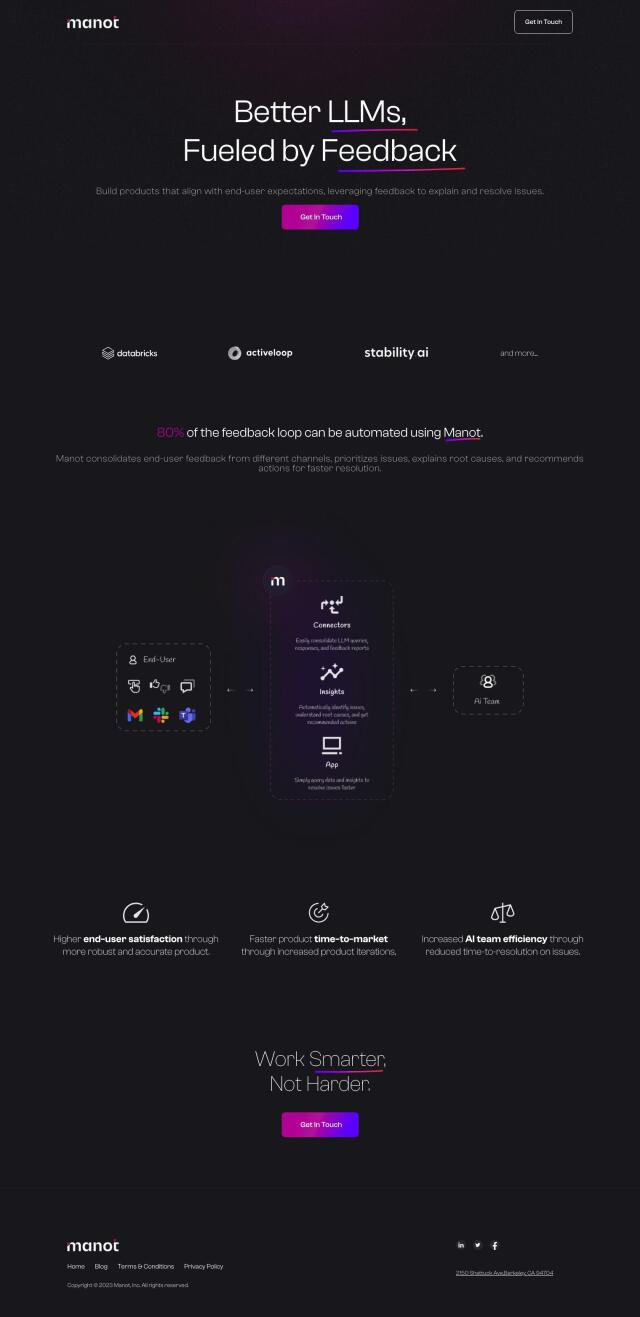
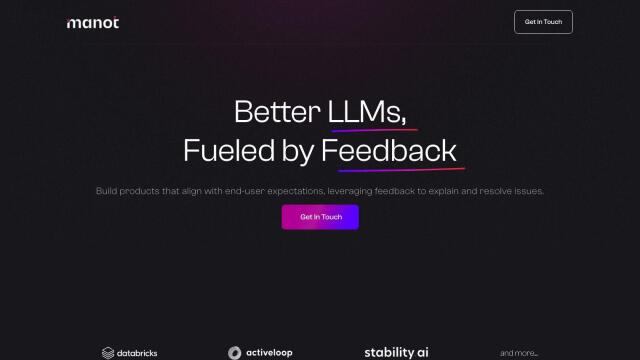
Manot
If you want to focus on and fix problems in your language model and do so as quickly as possible, Manot is a great option. Manot is an AI development platform that automates 80% of the feedback loop, helping you build more robust and accurate products. It collects user feedback from multiple sources, prioritizes problems, explains the root cause, and suggests actions to fix them quickly. The result is higher end-user satisfaction, faster product time-to-market, and higher AI team productivity.

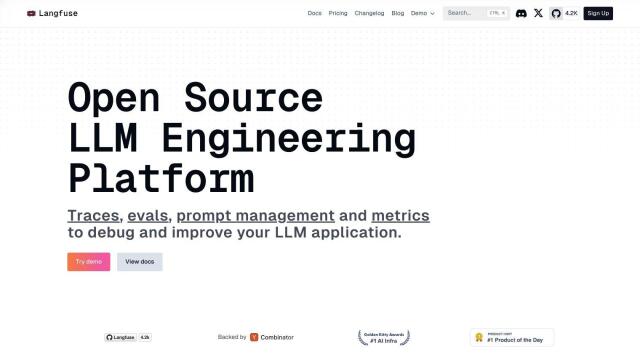
Langfuse
Another option is Langfuse, an open-source large language model (LLM) engineering platform that lets you debug, analyze and iterate on LLM apps. It includes a range of features like tracing, prompt management, evaluation, analytics and a playground for exploration. Langfuse captures full context of LLM executions, supports prompt versioning, calculates scores for completions, and provides insights into metrics like cost, latency and quality. It also supports integrations with many SDKs and security certifications, making it a powerful option for high-performance modeling.

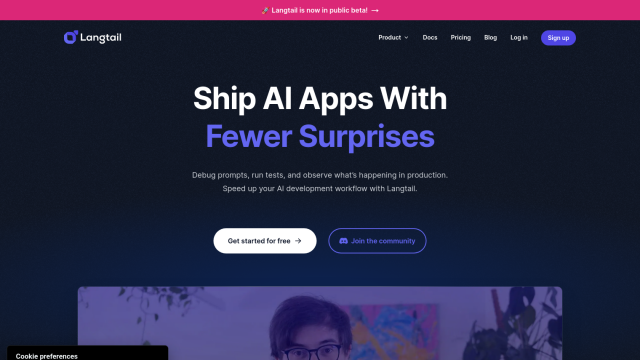
Langtail
If you need a no-code environment for building and testing AI apps, Langtail is also an option. It includes tools for debugging, testing and deploying Large Language Model (LLM) prompts. Langtail includes fine-tuning prompts with variables, tools and vision support, running tests to prevent unexpected behavior, deploying prompts as API endpoints, and monitoring performance with rich metrics. Its no-code playground and verbose logging make it easy to develop and test AI products.


LastMile AI
Finally, LastMile AI can help you productionize generative AI apps with confidence. It includes features like Auto-Eval for automated hallucination detection, RAG Debugger for improving performance, AIConfig for version control and prompt optimization, and Service Mesh for unified API gateway access to third-party models. With support for multiple AI models and a notebook-inspired environment, it makes it easier to deploy production-ready generative AI apps.

